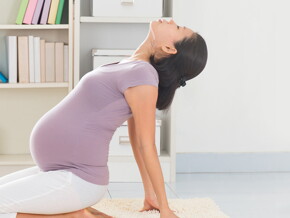
How to cope with pregnancy insomnia
It's normal to struggle to get sleep when you're pregnant. As the third trimester progresses, you may find it harder to get comfortable. This article describes how to get the rest you need.
Grab sleep when you can. That means sleeping when they do, whatever time of day.
Rest and sleep
Helping you to get the rest you need
It's normal to struggle to get sleep when you're pregnant. As the third trimester progresses and your bump gets bigger, you may find it harder to get comfortable.
If you aren't sleeping well, try not to let it bother you. Don't worry that it will harm your child – it won't.
Things to try:
- Do some gentle exercise during the day
- A rest during the day can also help you feel less tired
- Rather than watching television, spend the last hour before bed reading a book, listening to some restful music or taking a long soak in a warm bath
- Have a hot, milky drink before bed
- Lie on your side and put extra pillows behind your back, under your bump and between your knees
- Relaxation techniques may help. Ask for advice at your antenatal classes
Getting rest now you have delivered
It's important to recognise your sleeping pattern will probably change dramatically
- Grab sleep when you can. That means sleeping when your child do, whatever time of day
- Avoid the temptation to do housework when your child asleep, it's more important for you to get rest
- Don't be shy about asking friends for help and get as much help as you can from your partner, family and friends
- It's a good idea to get your partner to do some of the night feeds occasionally. If you're breastfeeding, that'll mean expressing some milk in the day
- It's also helpful if someone can look after your child for a couple of hours to give you some rest and space
- Occasionally sleeplessness, when accompanied by other symptoms, can be a sign of depression. Speak to your doctor or midwife if you're concerned.
Disclaimer: This content is shared for informational purposes only and not intended to be a substitute for professional/medical advice, diagnosis, or treatment. We recommended that you always seek the advice of your healthcare professional for any questions you may have regarding a medical condition/specific situation.
References:
















